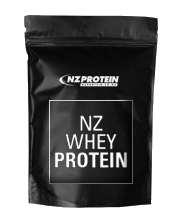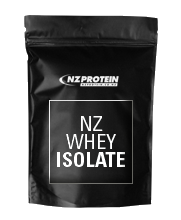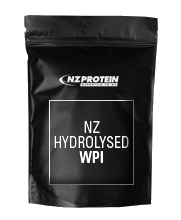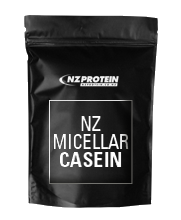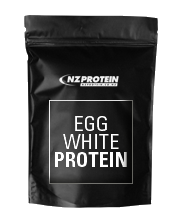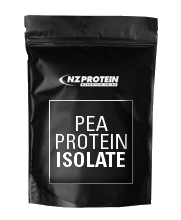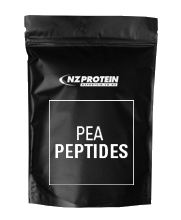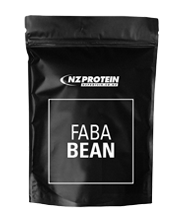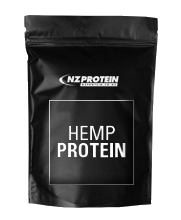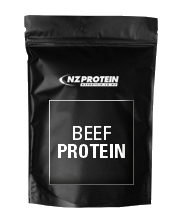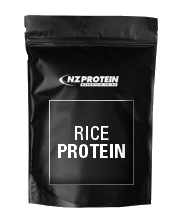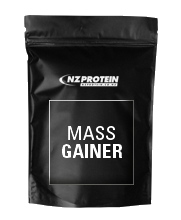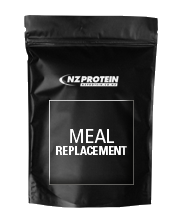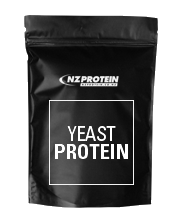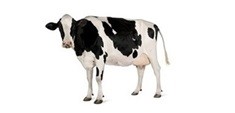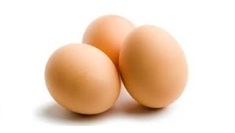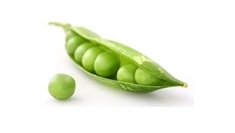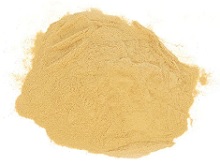WHICH TYPE OF PROTEIN IS FOR ME?
Protein exists in both plants and animals. It occurs in all living cells and has both functional and structural properties.
Protein is an essential part of the diet. When digested it's broken down into amino acids, commonly referred to as the 'building blocks of life'. Amino acids are used to make muscle, bones, skin, and other parts of the body. They're also used in other important functions including hormones, enzymes, antibodies, and more.
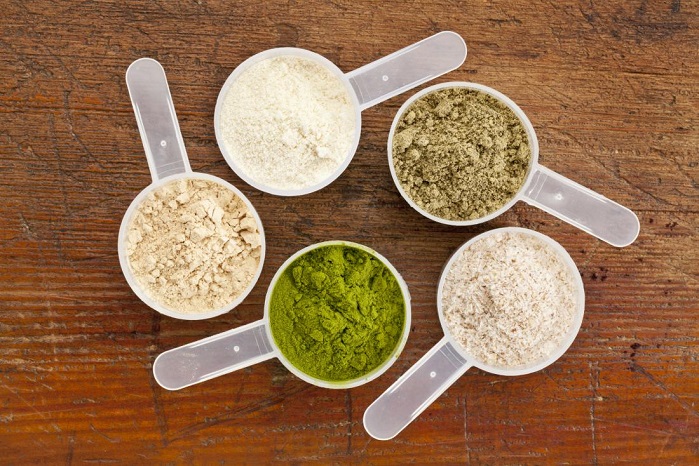
Comparison of Protein Powders
Most athletes use animal based proteins such as whey because these types have been available for the longest and are more common-place in the market, but times are changing as people develop new cutting edge ways to extract proteins from various sources including plants.
Animal proteins resemble the amino acid makeup of humans more than plant sources do and typically have better amino acid profiles, but plant proteins offer unique advantages too - they're generally alkaline, eco-friendly, anti-inflammatory, and slower digesting.
The following protein powders are all complete proteins, meaning they contain all essential and non-essential amino acids needed for muscle growth and development. They all have their own advantages:
|
|
|
|
|
|
|
|
|
|
|
|
|
|
|
|
Overview |
The most popular protein powder, rich in amino acids and Branched Chain Amino Acids (BCAAs). WPC digests quickly, making amino acids and their muscle-repairing benefits available to the body quickly. |
WPI is NZ Whey that's been further refined to remove virtually all lactose and fat. WPI is faster digesting than WPC and extremely high in protein and BCAAs. |
WPI that's had enzymes used to break down the protein chains, resulting in a product that bypasses the digestion process and is absorbed rapidly. It's heat stable too. |
Slow digesting protein that's high in protein and low in fat and carbohydrates. Especially useful for prolonged periods without feeding (such as before bed). |
Eggs are a great source of protein, particularly the egg whites, as they have a high amino acid profile and are virtually fat-free. Pasteurised so it’s safe to drink. |
Plant protein with an excellent amino acid profile. Peas are amongst the most digestible protein sources available. Non acidic (alkaline). |
Fully hydrolysed plant protein for superior digestibility. Hydrolysis breaks down protein into smaller peptides and amino acids, allowing them to bypass digestion and be aborbed very quickly. |
A more pleasant tasting plant protein. High in protein and similar to pea but with a better texture and functional, meaning that it goes well in recipes. |
Plant protein and nutritional powerhouse. A rich source of protein, essential omega fatty acids, dietary fibre, minerals, antioxidants and phyto-nutrients that can benefit your health |
Hypoallergenic source of protein that's high in naturally occurring collagen and has virtually no fat or carbohydrates. Contains up to 98% protein (unflavoured). |
A very hypoallergenic plant protein for vegetarians, vegans, and anyone with a sensitive stomach. |
Mass gainers are higher calorie than regular protein shakes so they're suitable for supporting mass gain. Our product is a big thick-shake that can be used for mass gain, a treat, or post exercise recovery. |
A superfood blend and formulated meal or smoothie booster. A formulated meal is a legal term for a product that contains protein, fats, carbs, vitamins and minerals. It can be used at anytime of the day to replace meals. |
A new type of protein that's nutritionally similar to whey. It's extracted by fermentation and, unlike animal and plant proteins, is not influenced by climate and environment. |
How it's Made |
Made in NZ during the cheese making process and ultra filtered at low temperature. 'Clean' protein from grass fed dairy cows that aren't factory farmed. NZ controls against hormones & antibiotics in milk. |
Ultra refined 'clean' NZ whey, formed through an advanced ion-exchange process which further removes fat and lactose. |
WPI that's been hydrolysed with enzymes to break down the protein chains. Still virtually free of fat and lactose. |
Caseins make up to 80% of the protein in cows milk. Made in NZ by being separated from milk and spray dried into protein powder. |
Made in Europe via a high-heat pasteurisation process where the protein is left to dry and turned into a powder. |
Made from yellow split peas grown in Canada and processed at low temperature to maintain nutritional quality. |
Made from yellow split peas grown in Canada and fully hydrolysed to pea peptides. |
Made from faba (broad) beans in Australia and stable at heat. |
Made by milling pressed hemp seeds into a fine powder and is sold with varying protein content depending on the level of milling and extraction. |
Made in Europe from beef which is boiled to remove fats. Protein is extracted and spray dried resulting in a product with 98% protein. |
Brown rice is ground to a fine powder and treated with enzymes to separate the starch and protein. |
From NZ whey protein concentrate and NZ whole milk powder, with added starch which increases the thickness. |
From our hemp protein and superfoods including cacao nibs, nuts and seeds, and green bananas. |
Made from fermentation. Sugar cane and molasses from beets are the source of nutrients for the yeast, and in turn waste from the industrial production of yeast is used as organic fertiliser for the production of crops. |
Per 100g |
Protein: ~80g |
Protein: ~94g |
Protein: ~93g |
Protein: ~81g |
Protein: ~82g |
Protein: ~80g |
Protein: ~80g |
Protein: ~85g |
Protein: ~60g |
Protein: ~98g |
Protein: ~80g |
Protein: ~33g (different type of product) |
Protein: 42g (different type of product) |
Protein: ~80g |
Complete Protein? |
|
|
|
|
|
|
|
|
|
|
|
|
|
|
Biological Value
|
104 1.0 (maximum, though technically 1.14) |
104 1.0 (maximum, though technically 1.14) |
104 1.0 (maximum, though technically 1.14) |
91 1.0 |
100 1.0 |
65 0.82 |
65 0.82 |
90 0.75 |
87 0.61 |
80 0.92 |
83 0.9 |
(Different type of product) |
(Different type of product) |
100 1 |
Speed of Digestion |
|
|
|
|
|
|
|
|
|
|
|
|
|
|
Mixing |
Instantised (spray dried with sunflower lecithin to improve mixability). Mixes easily in water, milk, or your favourite liquid without lumps. It can be mixed in a handshaker or with a spoon. |
Instantised (spray dried with soy lecithin to improve mixability). Mixes easily in water, milk, or your favourite liquid without lumps. It can be mixed in a handshaker or with a spoon. |
Mixes easily enough in a shaker but has some froth because it's not instantised. |
Mixes thicker than whey so more liquid needs to be added. Mixes easily in water, milk, or your favourite liquid without lumps. It can be mixed in a handshaker or with a spoon. |
Flavoured egg mixes better than unflavoured but it is recommended to add liquid before the powder in a shaker. Unflavoured mixes best in a blender. |
More liquid should be added to mix it than with whey. Mixes easily in water or your favourite liquid without lumps. It can be mixed in a handshaker or with a spoon. |
Mixes easily and is clear and not grainy (unlike regular pea protein). Note below. |
Faba soaks up a lot of water so more water is needed than with pea protein. |
Mixes easily in water or your favourite liquid without lumps. It can be mixed in a handshaker or with a spoon. |
Not instantised but mixes easily in water, milk, or your favourite liquid without lumps. It has a better and creamier texture if you mix with slightly less liquid than you'd mix whey with. |
Not instantised but mixes easily in water and other liquids. The powder is very light and fluffy and can make a mess, so care should be taken. |
Instantised so mixes easily in water and milk in a large shaker. Needs to be mixed in ice cold water or milk. |
Mixes easily in a handshaker with water or when added to smoothies as a superfood booster. |
Mixes easily in water or your favourite liquid without lumps. It can be mixed in a handshaker or with a spoon. |
Taste |
Our product is clean tasting and has a natural creamy texture. We don't add any thickeners to modify the texture. |
Has a lighter texture than WPC because it has virtually no fat. We don't add any thickeners to modify the texture. |
Bitter. Does not taste as good as the other whey proteins. We don't add any thickeners to modify the texture. |
Naturally mixes slightly thicker than whey. |
Flavoured egg tastes good. Unflavoured tastes like natural egg whites, but is easy to overcome this when made into a smoothie with fruit etc. |
Pea has more of a neutral taste than whey, and a natural plant based after-taste that is more noticeable with the natural unflavoured. Much easier to drink than rice protein. |
Due to hydrolysis this product tastes very bitter and requires more liquid than other protein powders to dilute the bitter taste. |
Faba bean has a neutral taste for a plant protein. |
Hemp has a pleasant neutral taste that won't impact smoothies etc when added. |
We think beef protein tastes as good as our NZ whey. It has a smooth texture and is more pleasant than pea and egg white. |
Rice protein has a thick texture when mixed and a natural 'grainy' texture. For best results mix in a blender with fruit. |
Great tasting. |
Typical for superfood sources. Whey and maltodextrin type MRPs will taste the best, but the banana chocolate nib flavour is pleasant. |
Yeast has a typical yeast smell but the taste is smooth and more pleasant than some plant proteins. |
Allergen Info |
Contains milk and lactose. Whey is naturally gluten free (note the cookies n cream flavour contains wheat and gluten)*. |
Contains milk and soy (lecithin). Virtually lactose free and naturally gluten free*. |
Contains milk. Virtually lactose free and naturally gluten free*. |
Casein contains milk and lactose but is naturally gluten free*. |
Contains egg but is milk, lactose, soy, and gluten free*. |
Hypoallergenic and non-acidic, pea isolate is naturally gluten free and is vegan friendly*. There is a peanut butter flavour which contains peanuts. |
Hypoallergenic and non-acidic, pea isolate is naturally gluten free and is vegan friendly*. |
Hypoallergenic, naturally gluten free and vegan friendly. |
Nil*. |
Hypoallergenic so unlikely to cause stomach upsets. |
Nil*. |
Contains milk. |
Nil*. |
Hypoallergenic so unlikely to cause stomach upsets. |
Cost Per Serve |
$1.50 |
>$2 |
$2 |
<$1.50 |
<$1.50 |
~$1 |
~$2.50 |
<$1.50 |
<$1.50 |
~$1.50 |
~$1 |
~$3 |
~$1.50 |
~$1.50 |
Key Attributes |
Fast digesting. Best amino acid profile. Best mixing/tasting. |
Fastest digesting. Higher protein and best amino acid profile with superior BCAA concentration. |
Enzyme treated to bypass the digestion process. Heat stable. Higher protein and best amino acid profile with superior BCAA concentration for muscle repair. |
Slow digesting, sustained release of amino acids. Good taste. |
Very good source of digestible protein and virtually fat free. |
Vegan friendly with a good amino acid profile. Tastes better than rice. |
Very specialised product for those with digestive requirements or those who want a fast acting plant protein. |
Vegan friendly and clean tasting for plant protein. Functional protein. |
Plant based. Contains essential fatty acids, fibre, antioxidants and other nutrients. |
Good alternative to whey. Very high protein with virtually no fat or carbs. Lower BCAAs but resembles beef. BCAA can be increased easily by adding a supplement if required. |
Plant based. Excellent amino acid profile but grainy to drink. |
A real big thickshake. |
Plant based. Full of key superfood ingredients and a much higher quality than other MRP's on the market. |
Neither plant nor animal based. Nutritionally similar to whey. |
Best For |
Best protein for pre/post exercise protein shakes. |
Good protein for pre/post exercise protein shakes if avoiding lactose and you desire a good tasting shake. |
Best protein for post exercise or you demand the absolute best. |
Best night-time protein or for other sustained periods without food. Usually works better in baking than whey as it doesn't dry out. |
Best replacement to have if avoiding whey or as a shake during the day to provide a slower release of amino acids than whey. |
Best vegan replacement for whey if avoiding milk. |
Very specialised product for those with digestive requirements or those who want a fast acting plant protein. |
Alternative to pea and works well in recipes. Heat stable. |
Best overall protein for smoothies (for both vegans and non-vegans). |
Best replacement for whey if avoiding milk and taste is key for you. |
Best suited to those with sensitive stomachs or vegans who do not want to use pea isolate. |
Mass gain but it can also be used as a cheat shake treat, or for helping with recovery when taken post exercise (by providing an extra boost of energy). |
Can be used at any time of the day to replace meals. |
Good replacement for either animal or plant based protein powders. |
|
|
|
|
|
|
|
|
|
|
|
|
|
|
|
How Much Protein Do I Need?
Protein powders can be useful for those who need to supplement their diet with protein, such as the elderly, those who are ill, some vegans and vegetarians, and those who don't obtain enough from their diet.
Athletes and active individuals typically require higher protein intakes. This increased need for protein can easily be met through supplementation of one of our formulations.
For those undergoing strenuous physical training between 1.5 and 2 grams of protein per kilogram of body weight is recommended to build muscle mass. Of course protein dietary needs vary depending on a range of factors including intensity of training, age, sex, goals, and so on.
Although these needs can be met by eating lean meats, eggs, fish, beans, and so forth - the addition of protein powders is a convenient way to supplement protein into the diet. Shakes are relatively inexpensive, quick, and easy. Shakes can be easier to digest and absorb than heavier foods, especially for those with sensitive stomachs. And most of the time they're delicious too!
Consume Protein From a Variety of Sources
With protein sources, the whole is often greater than the sum of its parts. Combinations are common and fill nutrient gaps of single protein sources. Ie, consume protein from a variety of sources as all sources have their own advantages. Overall it's best to choose a protein powder that suits your goals, dietary preferences, and any food tolerances.
Animal proteins tend to have an amino acid profile that more closely resembles that of humans. Animal proteins contain some nutrients which are not as common in plant foods, such as omega-3 DHA and vitamin B12.
Plant sources contain fibre and other nutrients vital to maintain health and wellbeing. Though some plant proteins can be incomplete, diets high in plant protein are associated with lower risk of disease and mortality.
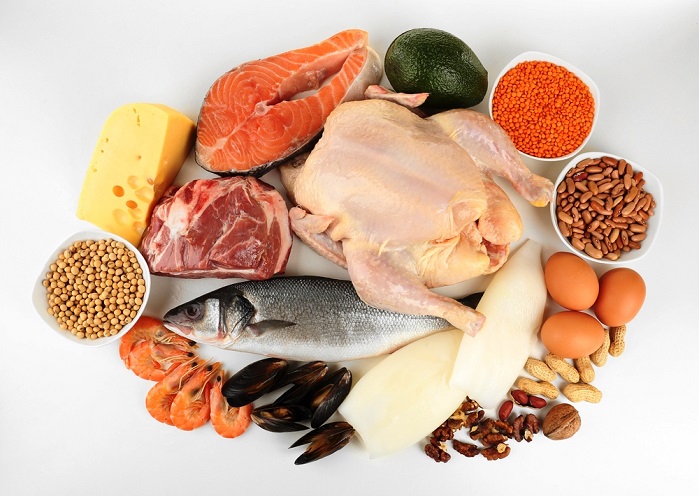
Supplement With Protein Powder For Muscle Development
Adequate intake of protein is essential for optimal functioning of the body and supplementing with protein powders is a convenient way to aid in the recovery of muscle and the building of new muscle.
The body is regularly breaking down proteins for various functions, and for muscle development more protein needs to be consumed than is broken down.
If you are working out in order to build muscle then it is a good idea to add protein powder to your diet. Protein shakes shouldn't be used to replace real food but rather be used to supplement extra protein to the diet.
There are plenty of ways to consume protein but powders are fast, convenient, and lower cost. They also have a smaller fraction of the fat and cholesterol found in some foods.
Supplement With Protein Powder For Weight Loss
Consuming protein can help you to feel full for longer and may help to curb sugar cravings.
Diets high in protein can help people to lose weight and keep it off. This is because consuming sufficient protein can help to help control blood sugar levels, maintain muscle mass, and increase metabolism (by gaining muscle, in turn burning even more calories).
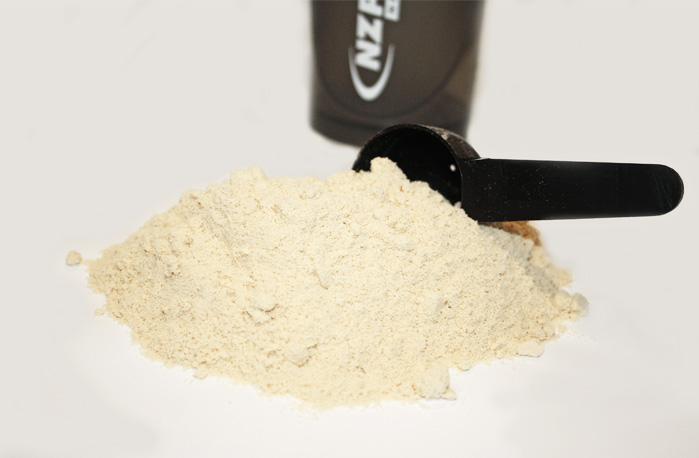
Supplement With Protein Powder For Overall Health
Proteins are an essential part of the diet as they're needed for various processes within the body including:
- The building and repair of body tissues
- The production of enzymes - most biological reactions require proteins to work as catalysts
- Form hormones which act as chemical messengers between cells, tissues, and organs
- Some types are fibrous (collagen, elastin and keratin) - ie, they provide structure, strength, and elasticity to parts of our body
- Assist immune function with the production of immunoglobulins to help fight infections, disease causing bacteria, and viruses
- The transport and storage of nutrients (such as iron) throughout the body
- Can provide energy in times of depletion, such as when calorie intake is low
- Proteins also maintain proper pH and fluid balance.
Suitable for Men and Women
All of our products are suited to both men and women.
